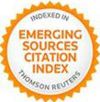Finding the real color-quantitative color examination and restoration of Chinese historical architecture 
Abstract
This study incorporates quantitative color examination and measurement into the study of visual performance of traditional Chinese architecture. It provides an objective and scientific way for generating color-restoration drawings that either reflect the “original” or “current” state of the building by looking for the extreme chroma color and calculating the average color. This method reinforces people's understanding of the true appearance of historic buildings and makes it possible to compare the similarities and differences of color schemes between different cases on an open and standard ground. This paper is supported by the Chinese National Key Research and Development Program of China - Research and Demonstration of Key Technologies for Scientific Cognition and Ontology Protection of Ming and Qing Dynasty Imperial Building Construction Techniques, Project Approval No. 2020YFC1522401.
Keywords
Full Text:
PDFDOI: http://dx.doi.org/10.2423/i22394303v12n1p121
References
Baxandall, M. (1985). Patterns of intention: On the historical explanation of pictures. London: Yale University Press.
Bian, J. (2013). Paintings and Polychrome Decoration of ancient Chinese buildings. Beijing, China: China Building Materials Industry Press.
Harrer, A., Li, L., & Jiang, Y. (2017). Repainting Antiquity: The 19th-Century Architectural Polychromy Debate Seen Through “German” Eyes: Hittorff, Semper, Kugler and Their Generation. World Architecture (11), 80-88+122.
Kruft, H. W. (1994). A History of Architectural Theory: From Vitruvius to the Present. New Jersey: Princeton University Press.
Li, L., & Shi, Y. (2021). A Preliminary Study on the Visual Properties and Material Practices of the Color Surfaces of Heritage Buildings - Take the Traditional Mineral Pigment " Shiqing" (Azurite) as an Example. Palace Museum Journal. (04), 65-94+110-111.
Lin, H. (1999). The Collected Works of Lin Huiyin: Architecture Volume. Tianjin: Baihua Literature and Art Publishing House.
Su, B. (1957). Baisha Song Tomb. Beijing: Cultural Relics Press.
Sun, D. (2006). Polychrome Decoration of Ancient China. Beijing: China Building Materials Industry Press.
Article Metrics
Metrics powered by PLOS ALM
Refbacks
- There are currently no refbacks.
Copyright (c) 2022 Yutong Jiang

This work is licensed under a Creative Commons Attribution-NonCommercial-NoDerivatives 4.0 International License.
SCIRES-IT, e-ISSN 2239-4303
Journal founded by Virginia Valzano




